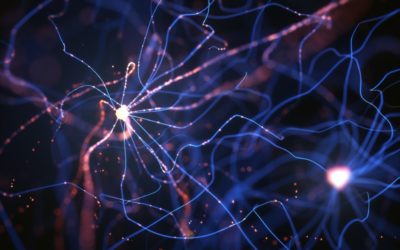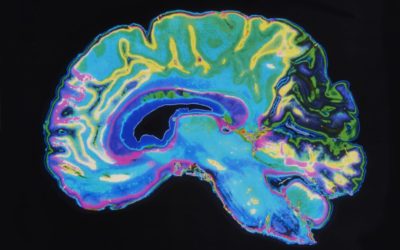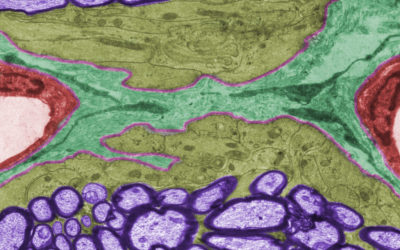
In the 1950s the blank slate theory was the most prominent theory ascribed to babies. They are born blank slates and then their experiences allow them to develop their networks thoughts, associations, etc., and just about everything else. Though this theory is long since dead, to an extent — to what extent has not been known.
In comes this research hot off the presses which shows just how much. The researchers around Fiona Molloy of Ohio State University analysed data from 267 newborns whose brains were scanned one week after birth, while they were asleep. Even though these babies were sleeping the brain still communicates with itself and reacts to the outside world, and by focusing at the micro level they could identify which networks were active in these brains.
They found that five of the seven major networks were already active showing that we are born with these circuits already active and functioning. The two that weren’t were the control network and limbic network associated with cognitive control and emotions respectively.
So, babies can’t exert emotional control — no surprise there. We also know this control network doesn’t actually fully mature until after 20 years old. What was also interesting is that the attention network showed the most variability suggesting that there are individual differences that are inborn and this attention network is related to behaviour and different disorders such as the obvious ADHD.
All in, another piece of critical evidence showing what is already happening in newborns’ brains.
Reference:
M. Fiona Molloy, Zeynep M. Saygin.
Individual variability in functional organization of the neonatal brain.
NeuroImage, 2022; 253: 119101
DOI: 10.1016/j.neuroimage.2022.119101
More Quick Hits
We’re Bad at Remembering How Happy We Were
The past ain’t always better – according to this latest research at least…
100 Years of Research Reveal the Most Effective Methods for Learning
New technologies, new research? No, the old methods are the best, and it’s surprisingly simple.
Why Too Much Talent May Harm Performance
This may sound like a strange thing to say – but talent and team coordination are different things…
How Nutrition Can Increase Motivation – In the Brain
Fascinating study on how antioxidants (and therefore also nutrition) in the brain can increase motivation…
Mindfulness Intervention as Effective as Drugs in Anxiety Disorders
An important study showing how mindfulness is as effective as medication – without the side effects…
New Insights into How the Teenage Brain Develops
Teenagers’ brains go through substantial changes – and now we know more of some of these…
Screen Time Boosts Wellbeing in Teenagers!
Screen time is considered a modern technological evil – maybe not so for teenagers…
Taking Photographs of Slides Improves Memory of Presentations
Taking pictures has been shown to reduce memory – but this study shows the opposite…
How Your Brain Eats Itself – To Improve Memory
Your brain eats itself – gruesome eh! Actually this appears to be a good thing most of the time…
A Regular Routine Makes You Happier and Smarter
Recent research just published shows that a regular routine with plenty of activity protects against depression and preserves cognitive function!










